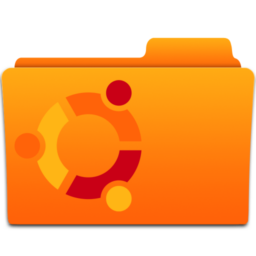-

How to Setup eduTrac SIS LMS with Nginx on Ubuntu Linux
The text is a detailed tutorial on how to install and configure the eduTrac SIS Learning Management System (LMS) on Ubuntu using the Nginx HTTP Server. It includes steps for thorough setup like installing Nginx HTTP Server, MariaDB Database Server, PHP 7.2-FPM, and related modules as well as configuring eduTrac Database. Lastly, it provides guidelines…
-

How to Setup Xavoc ERP, CRM and CMS with Nginx on Ubuntu Linux
This tutorial guides users through installing and configuring open-source ERP/CRM platform, Xavoc, on Ubuntu 18.04 or 16.04 with Nginx HTTP servers. Detailed steps cover the installation of the Nginx HTTP Server and MariaDB Database Server, alongside PHP 7.1-FPM. Further instructions explain the Xavoc database creation, Xavoc’s download, and final configurations for its functioning.
-

How to Install eduTrac SIS with Apache on Ubuntu Linux
The tutorial guides students and new users on how to install and configure eduTrac, an open-source Learning Management System (LMS), on Ubuntu servers. Primarily targeted at institutions and businesses, eduTrac assists in building and managing online courses. The installation process involves setting up an Apache2 HTTP server, MariaDB database server, PHP 7.2 and related modules,…
-

How to Install Xavoc with Apache on Ubuntu Linux
The content is a detailed tutorial on how to install and configure Xavoc ERP, CRM, and CMS platform on Ubuntu 18.04 or 16.04 using the Apache2 HTTP server. It provides users with step-by-step instructions on the installation process and discusses servers Apache2 and MariaDB, PHP 7.1 and related modules, creating a Xavoc database, and configuring…
-

How to Setup Coaster CMS with Nginx on Ubuntu Linux
Coaster CMS is a flexible, user-friendly content management system based on the Laravel PHP Framework. It has built-in modules for extended functionality and is optimal for blogs and websites. This post provides a comprehensive guide to installing Coaster CMS on Ubuntu using Nginx HTTP server, along with MariaDB database server and PHP 7.2-FPM. It includes…
-

How to Install Coaster CMS with Apache on Ubuntu Linux
This is a tutorial on how to install Coaster CMS, a Laravel-based content management system, on Ubuntu 18.04 or 16.04 using an Apache2 HTTP server. The process involves installation of Apache2 HTTP server, MariaDB database server, PHP 7.2 and related modules. After set-up, the user is guided through the creation and configuration of a Coaster…
-

How to Mount ISO File on Ubuntu Linux
The text is a tutorial demonstrating how to mount ISO files on Ubuntu 18.04 | 16.04. It explains that ISO files are often used when installing an operating system or archiving large data. The tutorial offers steps to mount ISO files via the Ubuntu command line, and Ubuntu desktop app and advises beginners to start…
-

How to Install Wardrobe CMS with Apache on Ubuntu Linux
The tutorial provides detailed steps on how to install Wardrobe CMS on Ubuntu 18.04 or 16.04 using an Apache2 HTTP server. The process involves installing Apache2 HTTP server, MariaDB database server, PHP 7.2 and related modules, and setting up the application with Wardrobe CMS. Wardrobe CMS is a lightweight, Laravel-based, open-source blogging platform ideal for…
-

Manage MariaDB with Adminer on Ubuntu: A Step-by-Step Guide
This tutorial guides on managing MariaDB | MySQL databases using Adminer, a versatile web-based database management tool, on Ubuntu. The process involves installation of Apache2 HTTP Server and MariaDB Database Server, securing the database, and setting up PHP script. It addresses potential login issues due to MariaDB and MySQL’s changed authentication method and demonstrates how…
-

How to Setup Atlantic CMS with Nginx on Ubuntu Linux
This tutorial instructs students and new users how to install Atlantis CMS on Ubuntu 18.04 and 16.04 with an Nginx HTTP server. Atlantis CMS is an open-source, Laravel-based content management system. Instructions are detailed on how to install Nginx HTTP, MariaDB database server, and PHP 7.2-FPM, creating an Atlantis database and configuring Nginx.
